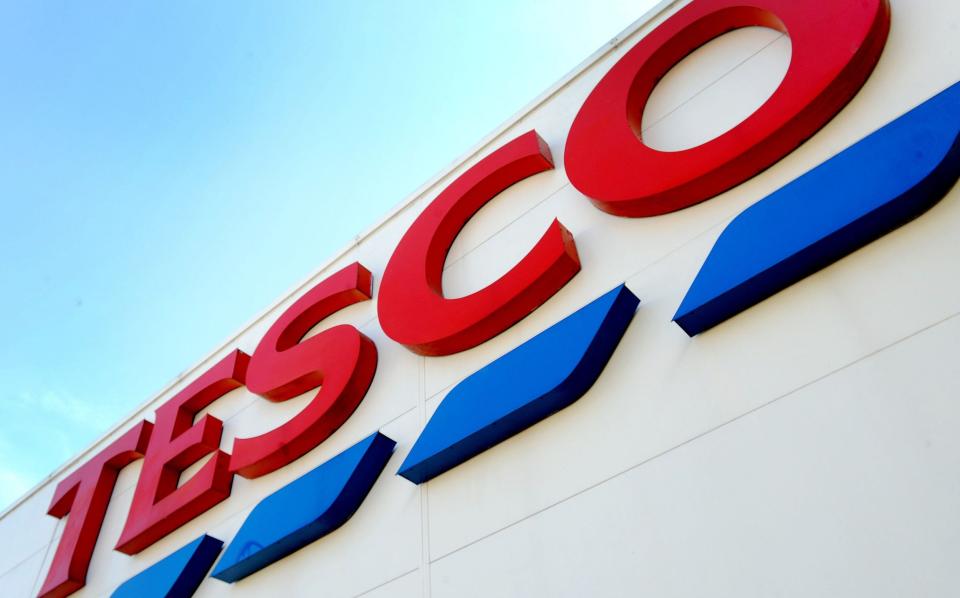‘Tesco will struggle to raise food prices – so we’ve sold out’

Dividends paid out by UK plc are not only higher than before the pandemic, but, most importantly, they are more robust, according to Clive Beagles, one of Britain’s best-known income fund managers. This will prove helpful if, or when, Britain enters into recession, he said.
His £1.8bn JOHCM UK Equity Income Fund currently yields 5.4pc, a level not recorded since the financial crisis of 2008. “Yes, we may be staring at a tricky economic outlook for the next six to nine months, but I don’t think it is going to be as difficult as 2008,” Mr Beagles added.
Nevertheless, it has been a challenging 12 months for the fund, which favours “value” stocks – ones the manager believes have share prices trading cheaper than the intrinsic value of the company. The fund has lost 4.6pc versus a smaller 1.8pc loss by rivals.
Mr Beagles tells Telegraph Money why Tesco could struggle to pass on the full whammy of price increases from here, and why he has been buying unloved electronics retailer Currys.
How do you invest?
We are very focused on how much value the shares offer and target stocks with higher than average dividend yields. We hope to deliver a healthy, growing dividend stream, as well as some capital growth from a diversified group of British stocks.
How have you changed the fund recently?
Over the past three to four months, markets have become very concerned about an economic slowdown, courtesy of the Russian invasion, the energy crisis and inflation. This has led to a real polarisation in the market. There are a narrow bunch of stocks everyone is hiding in, while everything else has sold off quite aggressively.
We have used that as an opportunity to sell the ones being used to hide in, one example being Tesco. It is a steady and resilient business, but even it will struggle to pass on price inflation to customers, as it likes to play the part of the people’s champion. The shares have done quite well, particularly compared with other parts of the market. By selling that we have raised some cash to buy distressed stocks elsewhere.
What have you been buying?
A whole range of things. We still like banks and insurance companies, which benefit from interest rates rising. These include Barclays, NatWest and Aviva.
We have also bought consumer stocks that have been weak, such as Currys. It has been severely hit, as investors worry no one will buy big-ticket items. We think Currys is gaining market share and the shares look very modestly priced at six-times earnings – especially for a market leader with a strong balance sheet.
Has the shift to ‘value’ stocks panned out as you expected?
The war in Ukraine has definitely got in the way. It has been disappointing over the past three to four months; while so many highly rated “growth” stocks have come down, a lot of “value” stocks have fallen as well – even though they were already cheap. People are worried about the economic outlook and earnings forecasts. We think a lot of that is already factored into share prices.
What is your outlook for dividends?
For context, our dividend fell 50pc in 2020, as Covid caused companies to suspend their payouts, or the regulators made them, as was the case with banks. After two years of strong recovery, dividends for 2022 will be about 10pc higher than in 2019, so we have come from a very large and deep pothole.
Dividends will be higher and, more importantly, the quality of those dividends will be better. On average, most companies’ dividends will be covered 2.5 times by earnings, whereas pre-Covid it was more like 1.8 times.
More cover gives you more protection against an earnings slowdown or something more severe.
What has been your best investment?
Glencore, the mining group, has more than doubled over the past three years. Many issues have been rectified, including a potential fine and bad press from a coal operation.
There has been a management change, and coal is now viewed as a necessary fuel to get us through this difficult period. Even though it has done well, Glencore still looks modestly priced.
And the worst?
Raven Property Group, an industrial warehouse business focused predominantly around Moscow. It was growing, but its shares have been suspended and we have written down the value of the holding to zero. Sometimes, unexpected things happen.
There was always a risk investing in Russia, but we would not have expected that risk to have manifested itself in such an extreme way as it has in the past few months.

 Yahoo Finance
Yahoo Finance 